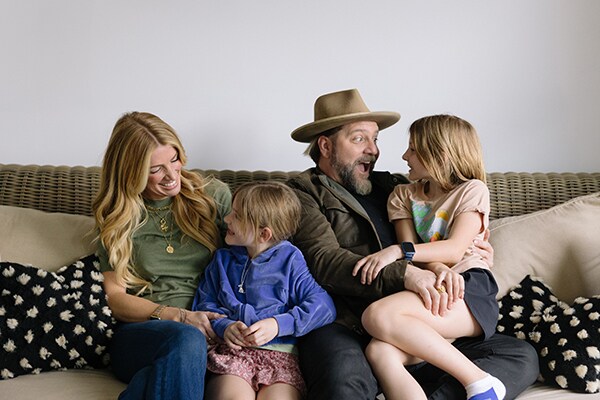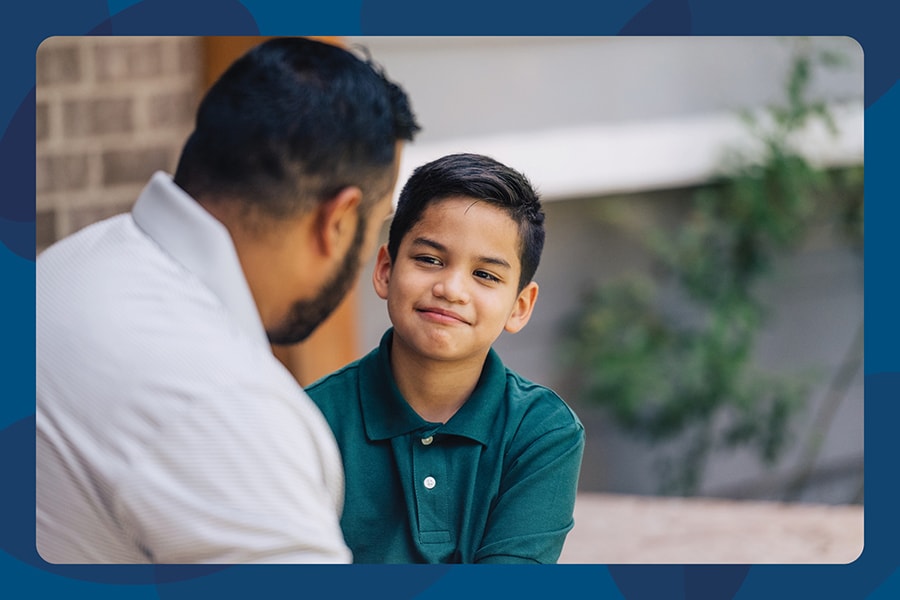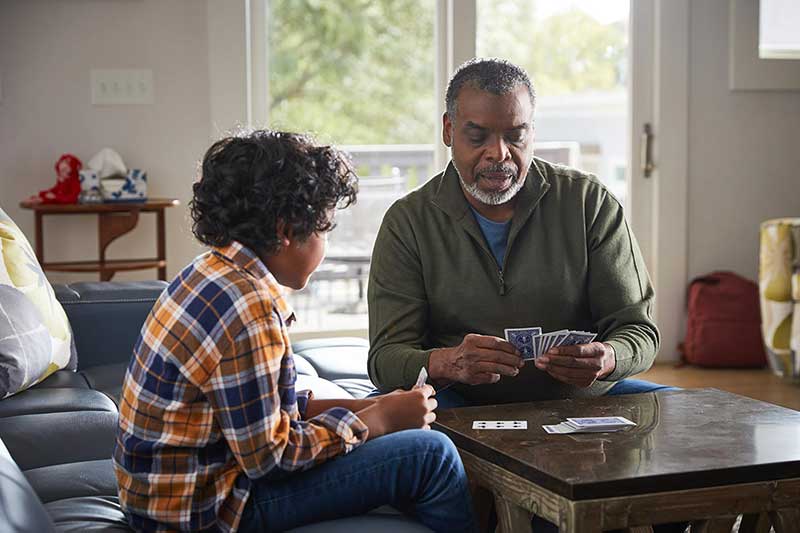Coy Bowles on Nurturing Connection at Home
We’re sharing the story of Zac Brown Band’s Coy Bowles as part of our Raising Resilience initiative, which equips parents and caregivers with tools to teach kids and teens how to cope with challenges, manage stress and ultimately make healthy choices throughout their lives.
Coy's story of resilience
Coy Bowles is widely known as a musician and songwriter in the Grammy Award-winning Zac Brown Band. But at home, he’s just Dad—a husband and father of two who’s deeply committed to raising resilience in his own kids.
From a young age, open and honest communication was simply how Coy’s family operated. “If I had any questions, it was always just ask away,” he shares. Even in life’s hardest moments, his parents encouraged him to feel whatever he was feeling—even if it was anger, frustration or fear. “Whatever you’re feeling is OK,” he remembers being told.
Looking back, Coy sees this as the greatest gift his parents gave him: “The ability to understand how I feel, and to communicate about my emotions.” Now, as a father himself, he’s determined to give his kids the same gift. “In this family, we talk to each other. We take the time to ask questions, to have empathy, to care, to understand,” Coy says.
For Coy, it’s up to parents and caregivers to equip kids with the skills they need to navigate life. “There’s no perfect way to do this,” he shares. But showing up with an open heart and a willingness to connect can make all the difference. “I’ve just seen it work time and time again that people who connect with each other—people who show love and empathy for each other, people who just keep trying to connect—those are the people I’ve seen have the most success in life.”
Coy believes that every child deserves to grow up with a foundation where all feelings are welcome, open conversations are encouraged and the adults in their lives keep showing up with open hearts.

How to have open conversations with kids
Having open conversations regularly helps kids learn that it’s normal and OK to have any (and all) feelings and to share them with others. Here are a few things to keep in mind when communicating with kids, all from our team of mental health experts:
- Practice active listening by giving your child your full attention while they’re talking. Put away any distractions, make eye contact and turn toward them.
- Ask open-ended questions to encourage them to share more than just “yes,” “no” or “fine.” Try, “What was the best part of your day?”
- Reflect back what you hear so that they know you’re listening and that what they’re saying is important to you. It also allows them to reflect further, share more or clarify, if needed.
- Help them label their feelings by using “I wonder” statements. For example, “I wonder if you’re feeling sad or embarrassed. Do either of those sound right?”
- Normalize and validate their feelings, rather than dismissing or minimizing them. Normalizing feelings communicates that your child’s feelings make sense and are normal, and validating feelings lets them know that you understand and that their feelings matter.
It's important to keep in mind that we won’t always know how to respond in every situation. If you’re not sure what to say, know that you don’t need to have the “right” answer, and you don’t have to fix what your child is feeling. They just need us parents and caregivers to show up, listen and be honest.
Never force your child (or anyone) to share their feelings. Our role is to create a safe, stable, nurturing space for kids to share, and their choice is to decide what, when and how much they’d like to share.
If you need help getting the conversation started, try asking your child one of these conversation starters, designed by our team of mental health experts to help parents and caregivers have meaningful conversations with kids. You can use these prompts during a car ride, over a family meal, as part of your child’s bedtime routine or anytime you have a moment to connect with your child.



